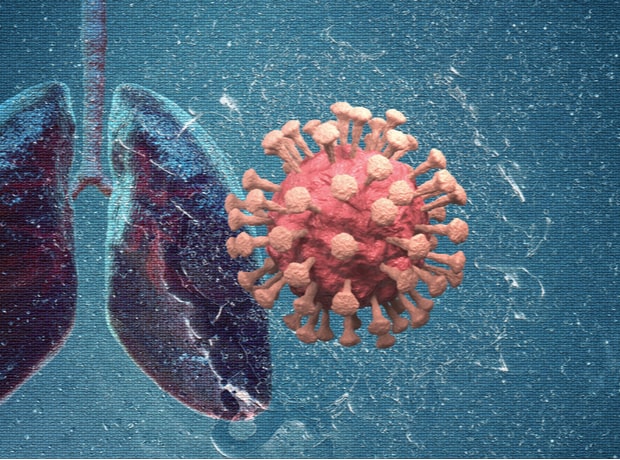NSCLC accounts for around 85% of all lung cancer cases, particularly in non-smoking patients
Researchers at the Francis Crick Institute, University College London (UCL) and AstraZeneca (AZ) have revealed why targeted treatment for non-small cell lung cancer (NSCLC) fails for some cancer patients.
Published in Nature Communications, the study demonstrated how lung cancer cells with two genetic mutations are more likely to double their genome, withstanding treatment and developing resistance.
Around 85% of all lung cancer cases are NSCLC, the most common type of lung cancer found in patients who have never smoked.
A common genetic mutation found in NSCLC is in the epidermal growth factor receptor gene (EGFR), which accelerates cancer cell growth and is found in up to 15% of NSCLC cases in the UK.
After re-analysing data from the trial of AZ’s EGFR inhibitor, Tagrisso (osimertinib), in patients with either EGFR-only or EGFR and p53 mutations, researchers found that tumours got smaller in response to treatment in patients with just the EGFR mutations, while some tumours had grown in patients with both mutations, providing evidence of rapid drug resistance.
Researchers then investigated why tumours may be more prone to drug resistance using mouse models with both the EGFR and p53 mutations.
Results showed that mice with resistant tumours had far more cancer cells that doubled their genome, giving them extra copies of all of their chromosomes.
When treating lung cancer cells with the single EGFR mutation and some with both mutations with the EGFR inhibitor, a significantly higher percentage of cells with both the double mutation and double genomes had multiplied into new drug-resistant cells within five weeks.
Charles Swanton, group leader, Cancer Evolution and Genome Instability Laboratory, the Crick and chair, Personalised Cancer Medicine, UCL Cancer Institute, commented: “A p53 mutation is associated with worse survival in patients with non-smoking-related lung cancer, which is the combination of EGFR and p53 mutations enabling genome doubling.
“This increases the risk of drug-resistant cells developing through chromosomal instability.”
Researchers are now looking to develop a diagnostic test to identify these mutations in patients for clinical use.
















+ There are no comments
Add yours